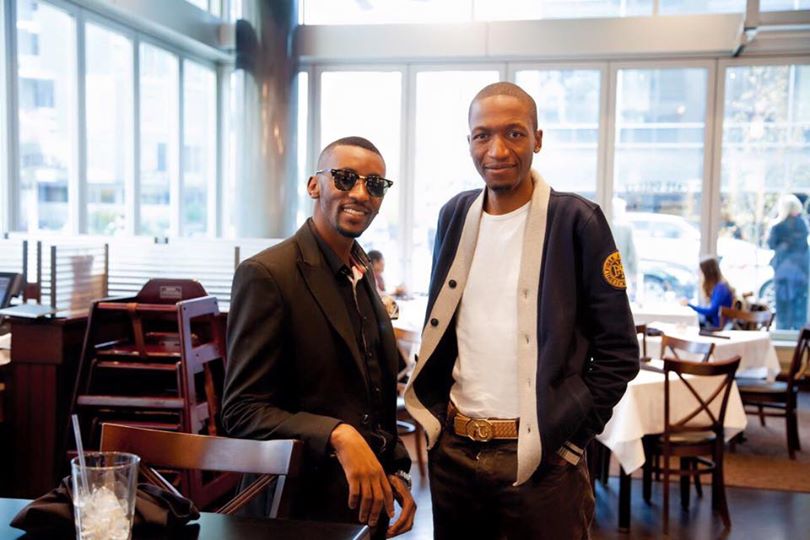There must be someone out there, who cares deeply for the First Lady, Grace Mugabe and to whom she pays attention. They are probably timid at this point, not sure what to do, or say, although they do know that this is not looking good and requires correction. They probably need to summon some courage to go and “whisper together” with her, as the great Achebe would put it.
They need to whisper into her ear, that this isn’t looking too pleasant, not for her target of attacks but for herself – her reputation and her dignity. For this, in the fullness of time, cannot end well. The short term looks rosy. It looks comfortable. But that is no guarantee of a long term of comfort and power.
Okonkwo is the tragic hero of Achebe’s classic, Things Fall Apart. Through hard work, he became successful and powerful in a short space of time, perhaps, too soon. But despite his success and power, pride was always one of the great fault-lines in his constitution and character.
On one occasion, Achebe wrote, at a meeting of men of Umuofia village, Okonkwo responded rather harshly, to a man who had contradicted him. “This is a meeting for men”, Okonkwo had said to the poor fellow. In the deeply patriarchal society that Achebe describes, this was one of the greatest insults that a man could throw at another, especially as in that case, where the man who had contradicted him had no titles. Titles were given to men who had achieved. “Okonkwo knew how to kill a man’s spirit”, writes Achebe.
The reaction of the other men was not to applaud Okonkwo. Instead, they took sides with Osugo, the man who had been called a woman. “Those whose palm-kernels were cracked for them by a benevolent spirit should not forget to be humble”, counselled the oldest man at the meeting, in a stern manner, referring, of course, to the fact that, although Okonkwo was a highlysuccessful man, he should be more humble in his manner and respectful in his treatment of other men, even if they were less favoured.
We are a long way from Okonkwo’s world in Things Fall Apart, although some might suggest that things are indeed, falling apart. Being a woman is no longer to be seen as the standard of weakness, no. But to read Achebe’s text in the literal sense here is to miss the point. Emanating from this capsule of knowledge is the notion that even if what you have to say is correct, there is a manner by which one is expected to conduct himself or herself and one’s approach can so easily obfuscate their message, and indeed, detract from their main point.
Grace Mugabe probably has some very strong points against her nemesis, Vice President Joice Mujuru, but she may not realise that she, not Mujuru is now becoming the caricature – the caricature of an arrogant, haughty and reckless First Lady. The trouble is that she does not seem to realise that people are no longer laughing at what she is saying but at her; that it is she, not the subject of her torment, who has become the joke. People are gasping, not at the gravity of the allegations that she is dishing out but at the manner in which she is conducting herself on the public stage.
It is not that people do not believe that what she says may be true, but that her conduct has shown her to be a vindictive individual who has a personal score to settle with her adversary. Instead of being a serious national issue over succession, it now looks like a petty, gossip-fuelled tiff between two women, or in this case a public tirade by one woman against another, township-style. The big irony is that it was her husband, President Mugabe who, last year, characterised South African diplomat, Lindiwe Zulu, as a “street woman” to express his unhappiness at her conduct. It was harsh. Later, they made up and she might even have received a presidential peck on the cheek. But Zulu had hardly exhibited characteristics of a “street woman”.
It is evident that Mujuru’s political fortunes are in serious jeopardy; that she has been on the ropes for some time and if it were a boxing match, the referee might, by now, have stopped the punishment. But as Harold Wilson said, a week is a long time in politics. And asked what could possibly derail his political progress, another former British Prime Minister, Harold MacMillan is said to have responded, tongue-in-cheek, “Events, dear boy, events”, referring to the fact that in politics, nothing is obvious and predictable, and that the course of politics is often dictated by unforeseen events. There is no way of telling what could happen tomorrow and how that can change the course of politics.
I have heard many declaring emphatically that it’s all over for Mujuru. That may appear to be the case, but to use Macmillan’s words you can never tell how events will shape up. A few years ago, in Malawi, Joice Banda seemed to have been cast aside and was wallowing on the sidelines, probably to be dumped at the next election. But that was until the unexpected demise of Bingu wa Mutharika, the then President and she, as Vice President, was the natural successor in terms of the Constitution. Suddenly, everything had changed. They tried to stop it but it was impossible. She went on to finish the term and those who had stood in her way suffered the consequences. Then she went on to lose in the election earlier this year when most things seemed to be going her way.
But in respect of her earlier rise, no-one could have imagined the death of Bingu waMutharika. That is the kind of ‘event’ that MacMillan would have been referring to. This is not to be read literally in regard to Zimbabwe but in the sense that you can never foretell the occurrence of events.
And even if Mujuru loses out on this occasion, as seems likely given the way things have transpired lately, it would by no means be the end of history for her or for the victors. Grace Mugabe would have won this particular battle, which has turned out to be quite personal, but she would have lost a great deal of her dignity in the process. Not that she will care, probably, as long as she has power or is on the side of those who have power. That, after all is the main objective in this case. But ancient wisdom does remind us that the higher the monkey climbs the tall tree, the more it exposes its nether regions. The trouble is we are seeing too much and there is nowhere to look, anymore.
There must be someone out there who loves and cares for Grace Mugabe. Go and “whisper together” with her. As for those who are cheering and egging her on, one has to doubt their sincerity. Because, we are sure they see what everybody else is seeing, and that this does not look good on her, whatever the strengths of her averments. But we guess they are not concerned about that, the pursuit of power being the primary goal, and so far she has been a willing and convenient tool.
These things tend to end up in tears. Ask Simone Ehivet Gbagbo, at one point the most powerful woman in Ivory Coast when she was First Lady. In the end, when she and her husband were cornered by a mob in a hotel room, she looked very pitiful. It did not look good at all. Power is transient. It comes and goes. When you have it, exercise it responsibly because when it is gone, as it has a tendency to do in one’s lifetime, it will never be good.
She needs to know that those who are sympathising with Mujuru are doing so not because they think she is innocent, no. They are doing so probably because at most, because they abhor the abuse of power. As for opposition supporters, it is probably because mostly, they see a replication of exactly the same methods that have been used against their own parties. People dislike arrogance. They dislike the abuse of power. And the treatment of Mujuru, while she is no angel, is familiar to them, which might explain the identification.
Observing all this, I’m reminded of the classic Karanga novel, China Manenji Hachifambisi, by Mordecai Hamutyinei, in which he portrayed many unforgettable characters. There was Morris Makura, the boy who had left the village for the city and done well. And Sabina, the beautiful vixen that he found in the city and with whom he fell in love. Then there was Chemedzai, the rural woman to whom Morris had been married by arranged marriage, in the customary manner. There was also vaMakura, the dignified old man who was Morris father and loved Chemedzai dearly and could not understand why his son was rejecting her and their custom.
Then there was Morris mother, who disliked Chemedzai with great intensity. Her name was vaPfocho. Those who read that book will know why those in the village called her by that name. But I know many have not. VaPfocho was one woman who spoke provocatively, without respect and without care for the consequences of her words.
waMagaisa@yahoo.co.uk
This was originally published at : http://newzimbabweconstitution.wordpress.com/2014/11/19/events-dear-boy-events/







